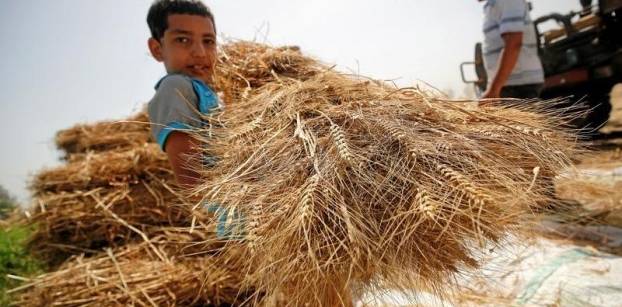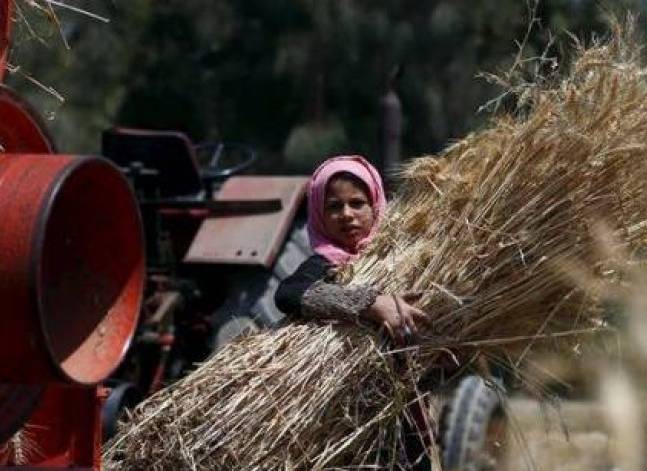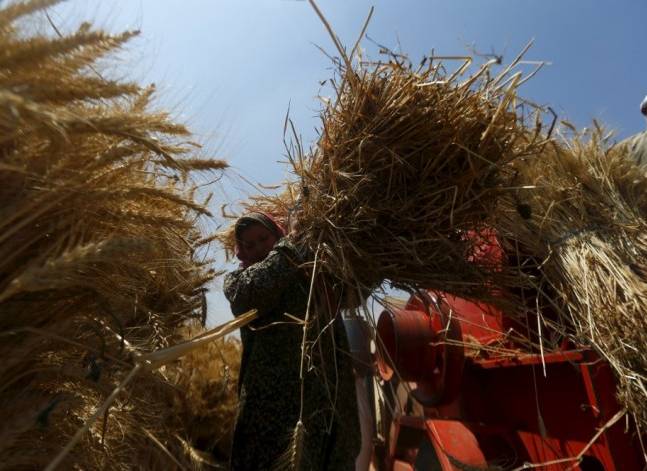Latest NEWS
- Aswat Masriya, the last word
- Roundup of Egypt's press headlines on March 15, 2017
- Roundup of Egypt's press headlines on March 14, 2017
- Former Egyptian President Hosni Mubarak to be released: lawyer
- Roundup of Egypt's press headlines on March 13, 2017
- Egypt's capital set to grow by half a million in 2017
- Egypt's wheat reserves to double with start of harvest -supply min
- Roundup of Egypt's press headlines on March 12, 2017
FAO respects Egypt ergot reversal despite international standards
A son of farmer carries freshly harvested wheat in a field in Qaha, El-Kalubia governorate, northeast of Cairo, Egypt May 5, 2016. REUTERS/Amr Abdallah Dalsh
ABU DHABI (Reuters) - The United Nations Food and Agriculture Organization (FAO) said on Monday it respected Egypt's decision to go back to a zero-tolerance policy of ergot in wheat, even though its own codes allow a higher level.
"FAO respects the confidentiality of the risk analysis process and the decision of the Ministry of Agriculture and Land Reclamation of Egypt," a statement by the organisation said.
Egypt, the world's largest wheat importer, reinstated a ban on Sunday on wheat shipments containing even the slightest amount of ergot, a common grain fungus, baffling traders who had returned to the Egyptian market last month when the ban was lifted.
The Codex Alimentarius, a joint FAO and World Health Organisation guide, sets 0.05 percent as the maximum acceptable level of ergot in wheat for human consumption.
The FAO was asked by the Egyptian agriculture ministry to conduct a risk assessment on the fungus to help put an end to an inter-agency dispute that had gone on for six months.
Egyptian quarantine authorities started to refuse wheat shipments infected with even trace amounts of ergot-- which can lead to hallucinations in large quantities but is considered harmless at minor levels -- late last year, wreaking havoc in the grain market.
The FAO risk analysis was among the factors behind a ministry decree that came into effect last month allowing for up to 0.05 percent ergot and putting an end to the dispute.
But the FAO said on Monday that each country was free to set up its own specifications.
"Countries can decide on the nationally applicable standards based on sound risk analysis and evidence base," it said.
The July decision to accept the international standard had resulted in larger numbers of suppliers participating in state purchase tenders but the recent reversal risks significantly reducing trader appetite to sell wheat to Egypt.
(Reporting by Maha El Dahan; editing by David Clarke and Adrian Croft)













